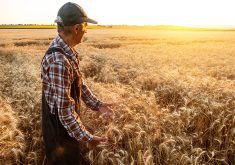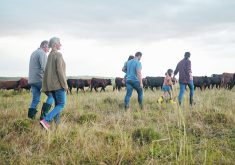NEW NORWAY, Alta. — Low prices and a busy off-farm job convinced Dean Durand to sit down with his parents in 2005 and question why they were still farming.
“Canola was priced at $6 a bushel and barley was $2 and it didn’t make any sense. It was a tough one. We sat down at the table a few times, Mom and Dad and I. It was tough, but you got to go where the money is,” said Durand, who now lives on the home quarter.
“When we made the decision, we were done.”
In 2005, the family sold the larger farm equipment to neighbours, held a farm sale for the smaller pieces and rented the land. The bins are still in the farmyard and Durand discusses planting decisions with the neighbour who rents the farm.
“I am a farmer absolutely, but not to the level we were used to,” said Durand, who retired in 2019 from his off-farm job with Spartan Controls after 25 years.
While Durand liked both farming and his job, he spent all his holiday time seeding or harvesting and the pace was wearing.
“I used up all my holidays to come home and harvest. Realistically, after a while, it wasn’t good. You don’t get a break. You come home and pound it out and sometimes you come home and it rains for three weeks so we got no harvest done. After a while, I thought that was stupid.
“I don’t regret farming. It was great growing up on a farm. You got to create something. You take something and you grow it.”
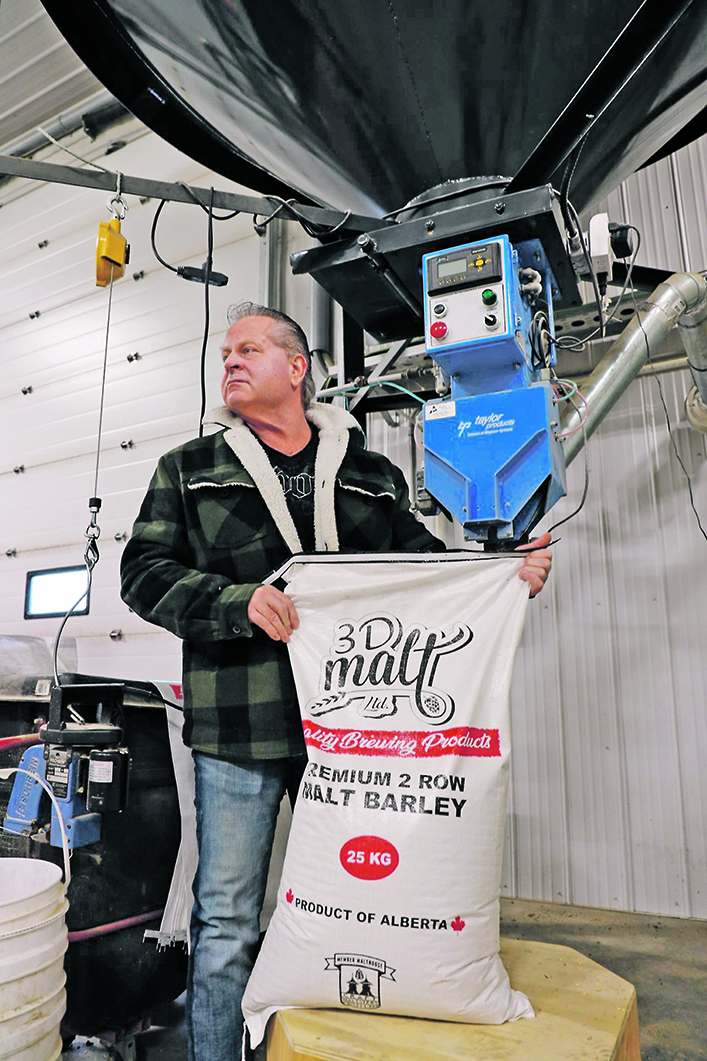
After starting with a 75-acre river lot and growing the farm to 2,000 acres, the decision was made to retire from active farming.
A year after retiring from his off-farm job commissioning off-shore oil platforms around the world, Durand and his friends decided a different kind of agriculture was in their future. Beside the grain bins, they built 3D Malting, a small farm-based malting company to supply the growing craft beef industry.
“We grow really great malt barley, the best in the world here. Why can’t we do this?” said Durand, who formed the company with friends Darry Olsen, Darrell Hegeland and Wade Mowat.
Through research, malt plant tours and a course in Winnipeg, the crew built the building and equipment before creating their first batch of malt in 2020.
“We made lots of errors. The first three batches we dumped to the deer.”
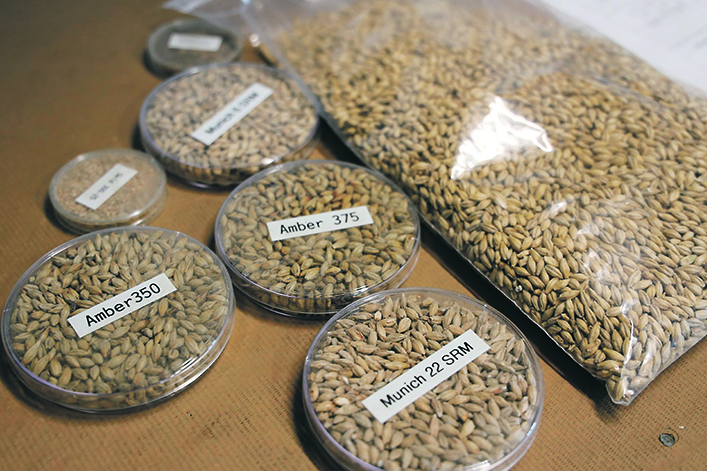
On Boxing Day, with a vessel full of water and barley, they realized the drive shaft rotating the malt vessel was too small and wouldn’t budge the heavy mix.
“It was full of water and it was -35 C. We flooded the malt plant because we had to get the barley out of there before it set up. It was a horrendous mess. We just dumped it on the ground and moved it out with a skid steer loader.”
The two-tonne stainless steel vessel needed an extensive retrofit before they could begin turning their barley into malt. The next year, they added a three-tonne malt vessel and have been steadily making malt since.
Durand said they are looking for three more craft beer customers to add to their present 14 to put them at capacity for the size of their plant. Quality control is key for the group. Samples from each batch are sent to Hartwick College in the United States for testing. Adjustments to their blends, temperatures and timing are made after each analysis.
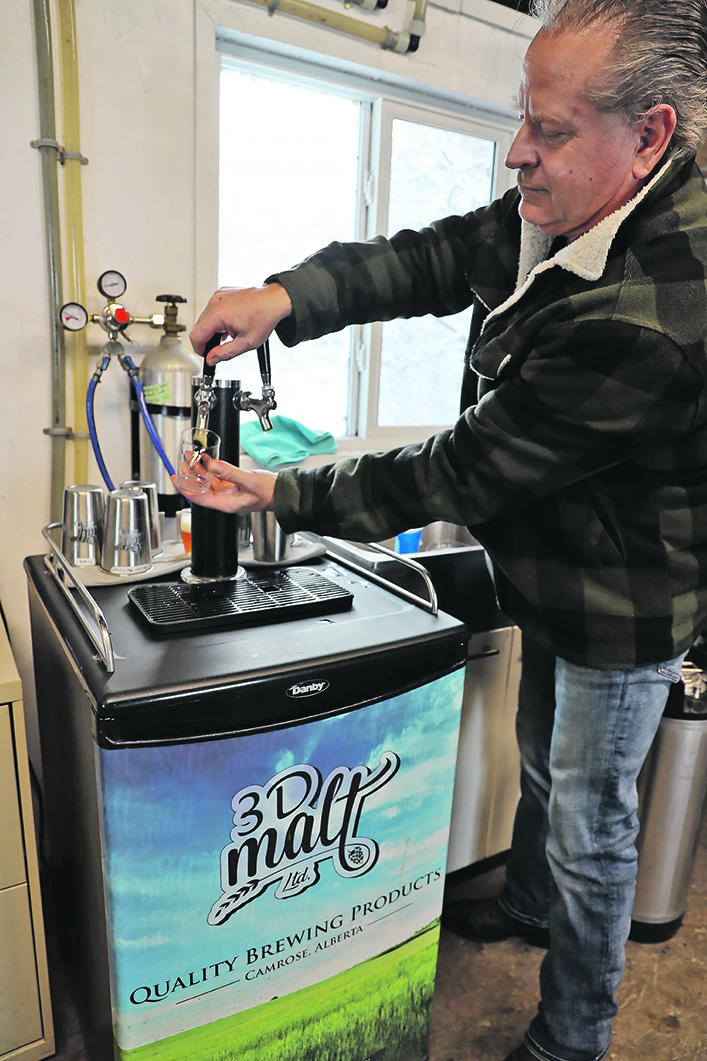
At the facility, they malt rye, oats, wheat and seven kinds of barley. Depending on the year and the crop rotation, some of the barley comes from Durand’s land, but all comes from local farms.
After a lifetime travelling around the world with his oilfield job, Durand is happy his new job requires no travel.
“I walk across the yard to my job, 300 feet and done. I don’t have to start a vehicle.”






